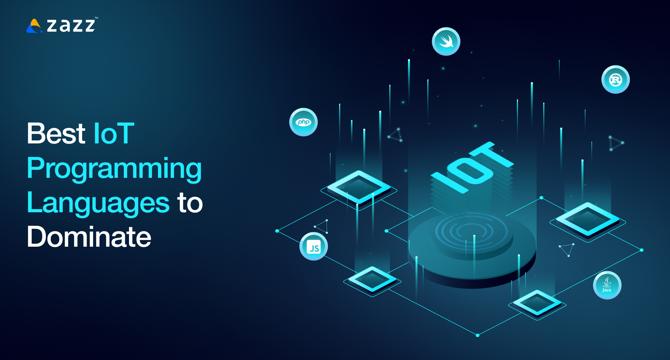Zazz
3w
258

Image Credit: Zazz
Best IoT Programming Languages to Dominate in 2025
- Selecting the right programming language is critical for the success of IoT projects as it affects how applications perform, scale and secure user data.
- Python is popular in IoT development and is used in creating web interfaces, machine learning models and data analysis tools.
- Javascript and Node.js are essentials for developing interactive IoT applications and building dashboard displays.
- Java works across different devices due to its platform-independent nature and has robust security features to prevent vulnerabilities.
- C is vital for IoT device hardware, as it allows developers to control microcontrollers and sensors used in devices for efficient performance.
- C++ adds modular, reusable components, ideal for large IoT projects with complex designs, as well as devices that need to process data accurately.
- Go (Golang) performs concurrent programming, excels in building scalable network servers and processing large volumes of data with ease.
- Rust is designed for high-performance IoT applications that demand safety and speed and help to prevent system failures.
- Kotlin is modern and works seamlessly across platforms and emphasizes safety features to reduce errors in complex IoT applications.
- It is critical to consider device compatibility, performance, scalability, security concerns, and ecosystems/community support while choosing a programming language for IoT, as it can influence the project's success or failure.
Read Full Article
15 Likes
For uninterrupted reading, download the app